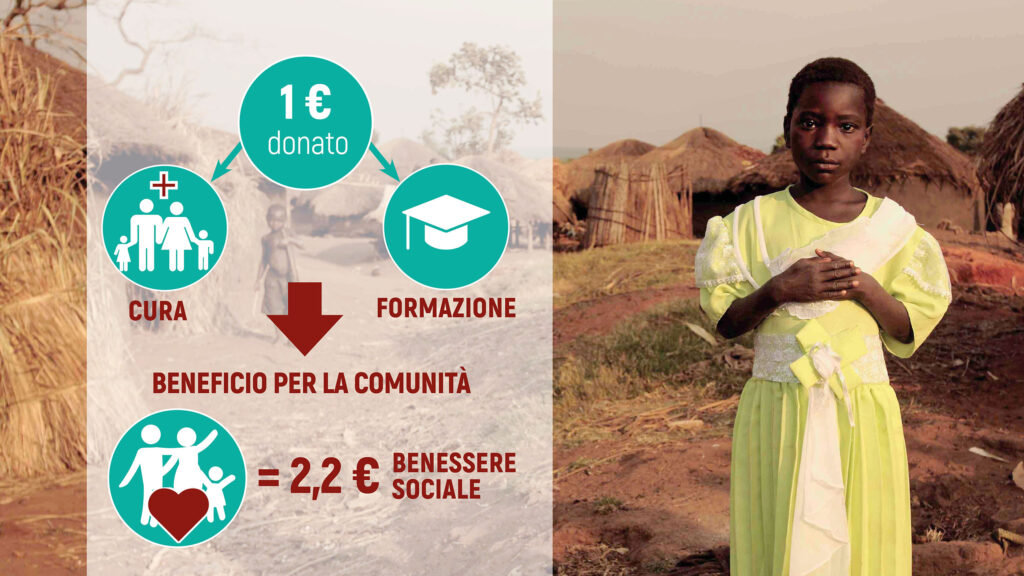

Health, work, training: in a word, development
The commitment of Piero and Lucille Corti and, later, the Foundation has enabled Lacor Hospital to become a point of reference for millions of people in Northern Uganda.
Today, the hospital’s role goes far beyond caring for the sick: it is the leading private employer in Northern Uganda and is a determining factor in the social and economic development of the region.
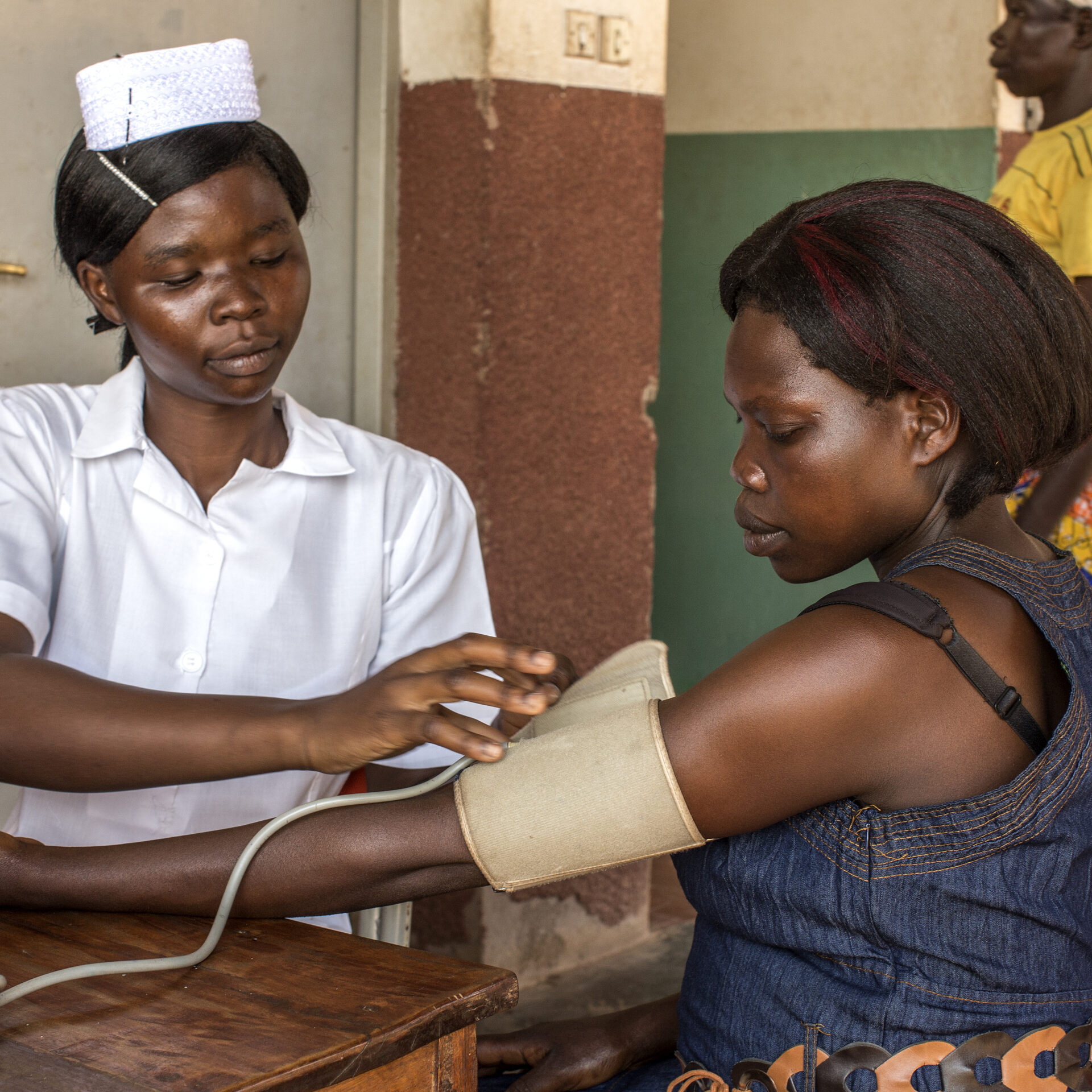
Numbers that speak about… people saved
750,000 people
rely on Lacor Hospital for treatment: these are the residents of three districts.
For some services, the hospital is the only referral for all of northern Uganda, and some patients also come from other parts of Uganda and neighboring South Sudan.
188,499 patients treated
average each year, are treated in the hospital and in the 3 Peripheral Health Centers located within a 40-km radius of Lacor, closest to the communities. The free or highly affordable treatment offered by the hospital is the only opportunity for many to receive medical care: 67 percent of the local population in fact lives in poverty.
8,839 deliveries
On average, about 8,000-9,000 deliveries a year are attended. In a country where the infant mortality rate is still very high (48 out of every 1,000 babies born do not make it to age 5), about 80 percent of the hospital’s patients are mothers and children.
15,000 health sessions
activities carried out in villages and hospitals: visits for health education, for patients with tuberculosis, meetings with more than 100 Village Health Teams, HIV counseling and testing, education in schools, support and supervision to other smaller health centers.
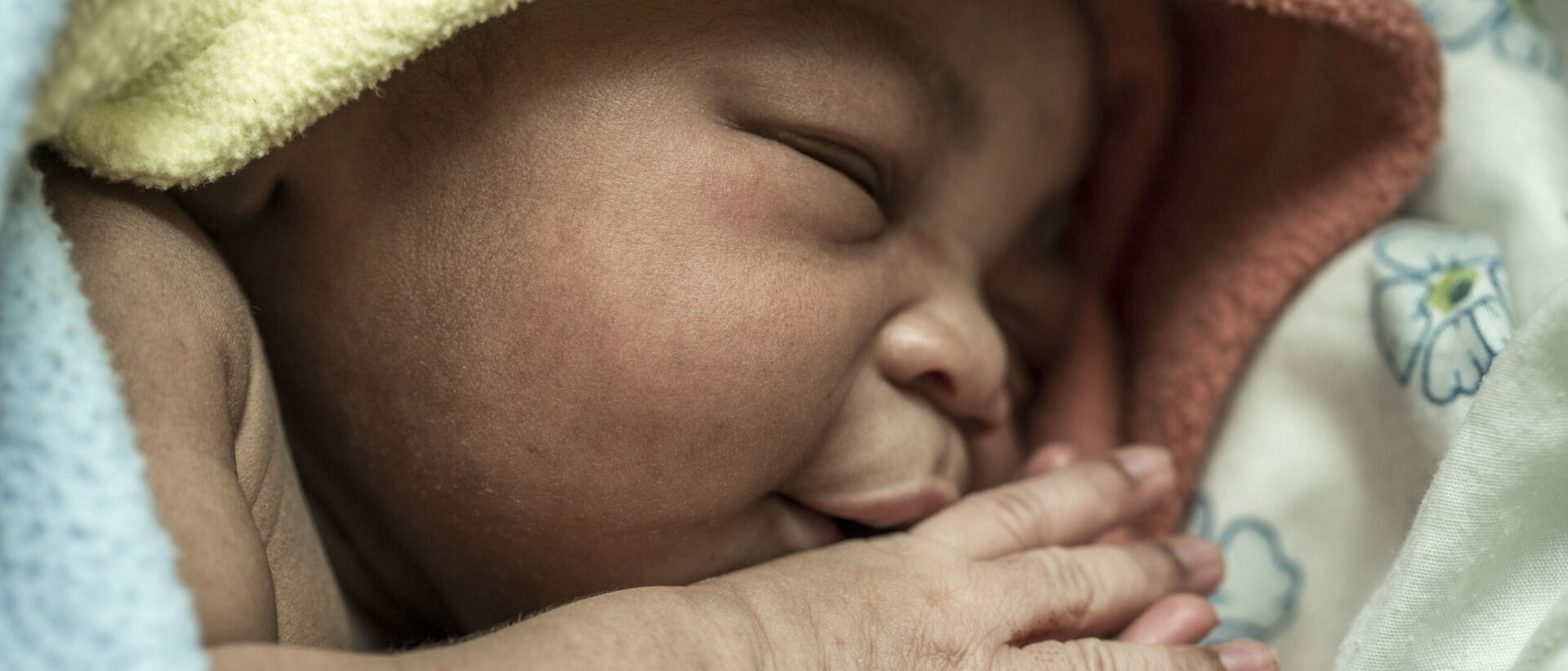
Numbers that talk about…. development
671 employees
hired locally: Lacor Hospital is the largest private employer in Northern Uganda.
400 friendly loans
low interest-rate loans are provided by the hospital’s credit union-many employees use them to send their children to school. Thousands of children have received an education thanks to this opportunity and the stability of employment provided by the hospital.
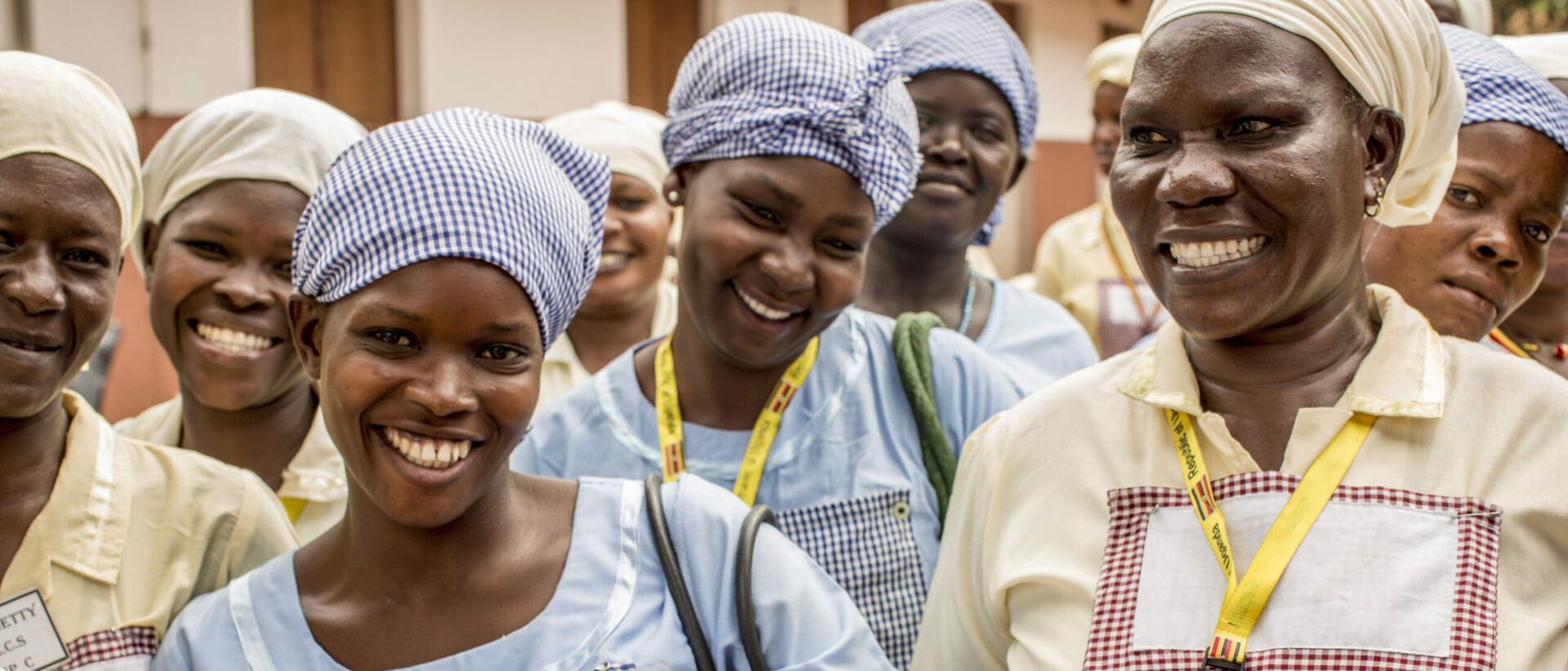
Numbers that speak about… a better tomorrow
547 students
are trained each year in the schools for nurses, midwives, laboratory assistants and anesthesia technicians. They will become nationally qualified professionals because the Hospital’s schools are legally recognized by the Ministry of Health.
266 university students and trainees
University students and medical trainees attend Lacor Hospital as the University Pole of the Faculty of Medicine of the Government University of Gulu.
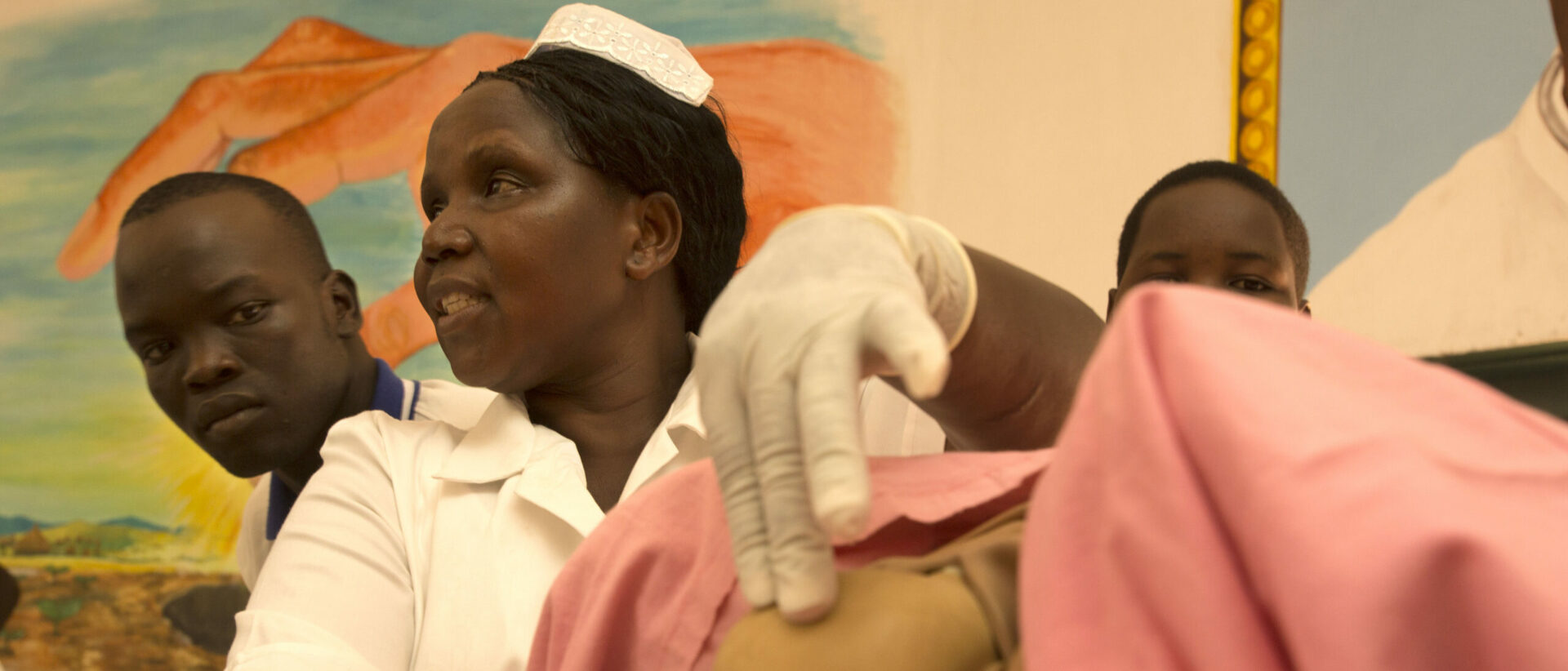
SROI – Social Return on Investment
For every euro donated to Lacor, a social impact of 2.2 euros of welfare is generated for the community. Lacor Hospital thus not only treats patients and trains health care professionals but also increases welfare for the district’s economy.
Social Return On Investment (SROI) measures the social impact that the presence of a large hospital company has for the economy of the district in which it operates.
Given the difficulty of placing a value on each person reported to health and each student pursuing a health degree, SROI is calculated exclusively by considering the monetary flows attributable to the hospital’s presence:
- direct flows: resources injected into the territory by Lacor Hospital through staff salaries and direct purchase of goods/services;
- indirect flows: resources injected into the territory through purchases made by staff, students, patients and companions attending the hospital;
- induced flows: multiplier effect given by the injection of money into the local economy. (Study referred to the year 2017).
